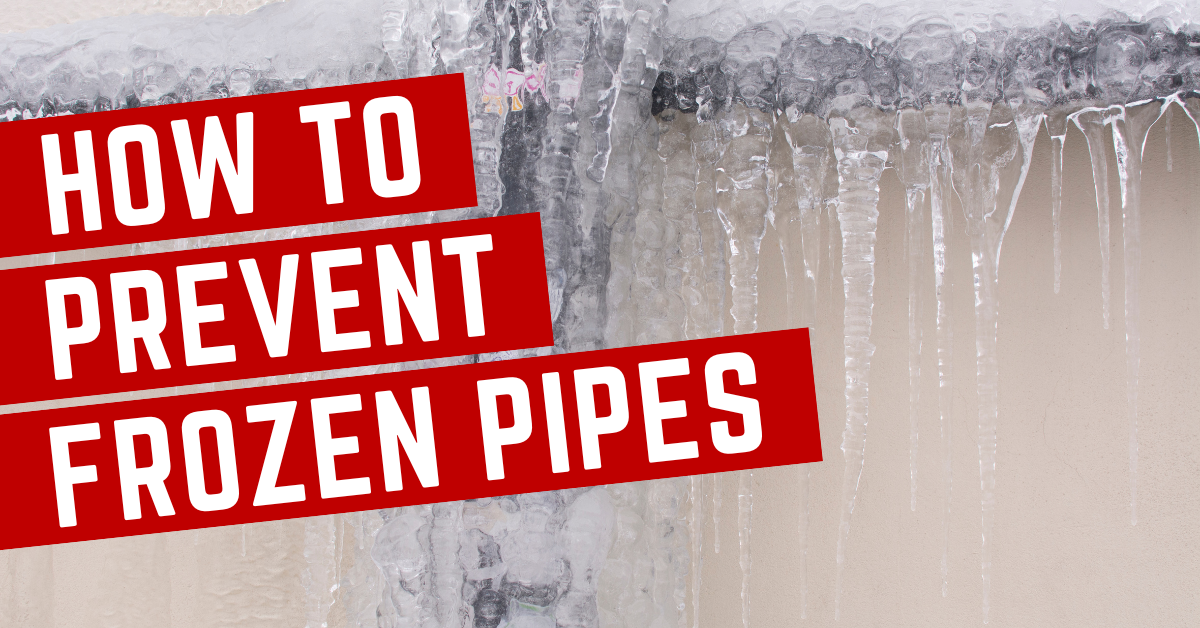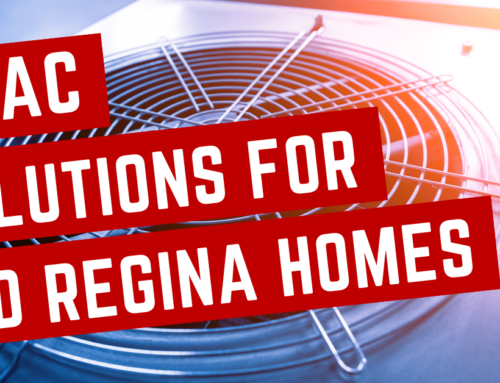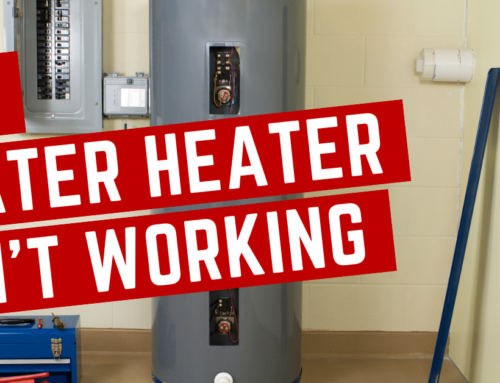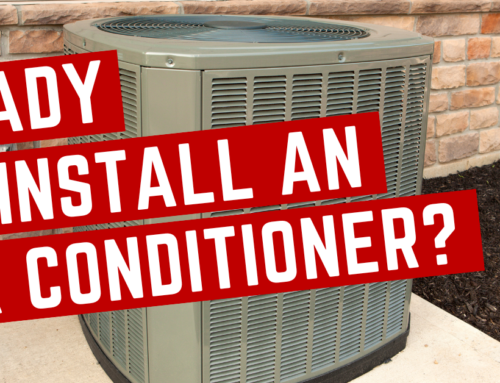In Regina, where winter feels like our middle name and lasts for what seems like eight months a year, the phrase “frozen pipes Regina” is all too familiar to search. With Saskatchewan’s famously frigid temperatures turning everything from your morning commute to your backyard into a tundra, it’s a time of beauty, challenges, and, let’s be honest, a bit of endurance. With a mix of preparation, knowledge, and a dash of Saskatchewan Roughrider fan spirit, you can outsmart the cold and keep your pipes flowing freely all winter long. So, keep reading to learn how to tackle one of winter’s most persistent puzzles—keeping those pipes from freezing.
Why Do Pipes Freeze and Why is it a Problem?
In Regina’s cold climate, water inside pipes can freeze when exposed to low temperatures, especially in poorly insulated areas or where pipes are exposed to drafts. This frozen water expands, increasing pressure within the pipe. This can lead to cracks or even burst pipes, resulting in water damage and potentially costly repairs.
Don’t They Put The Pipes Further In The Ground To Prevent This?
In Regina, the frost line can be quite deep due to the extremely cold temperatures experienced during the winter months. As a precaution, water supply lines are typically required to be buried well below this frost line to reduce the risk of freezing.
However, while this practice effectively reduces the risk of the main supply lines freezing, the pipes within a home’s interior or those leading directly into the house from the main line can still be vulnerable to freezing. This is particularly true for:
- Pipes that run through unheated spaces.
- Pipes along exterior walls.
- Poorly insulated areas of the home.
As a result, even with preventive measures taken during construction, homeowners in Regina still need to be vigilant about protecting their indoor plumbing during the winter to prevent freeze-related issues.
High-Risk Areas for Pipe Freezing in Your Home
Certain areas in your home are more prone to having frozen pipes, including unheated interior spaces like basements, attics, and garages. Here’s how Regina residents can spot these vulnerable areas, especially during the city’s long and frigid winter months.
Unheated Interior Spaces
Pipes located in areas of your home that are not regularly heated are at a higher risk of freezing. This includes spaces like basements, attics, crawl spaces, and garages. These areas tend to be out of sight and out of mind, making it easy to overlook the pipes within them until it’s too late.
Exterior Walls
Pipes that run along or are embedded in exterior walls face a greater risk of freezing due to their proximity to the cold outdoor temperatures. Even if the room is heated, the insulation between the pipe and the exterior wall may not be sufficient to prevent freezing.
Cabinets and Closets
Surprisingly, the pipes under your kitchen and bathroom sinks are also at risk, especially if they are located on an exterior wall. Cabinets and closets can block heat from reaching these pipes, lowering the temperature around them enough to cause freezing.
Drafty Areas
Look for signs of drafts in your home, such as around windows, doors, and where utility lines enter your house. These drafts can usher in cold air which can lead to nearby pipes freezing.
Regularly check these areas for cold drafts and frost accumulation to help you catch a problem before it escalates. In the next section, learn preventive measures to take before winter hits.
Preventative Measures For Frozen Water Pipes Before the Cold Hits
Before the chill of winter fully sets in, taking proactive steps can significantly reduce the risk of frozen pipes in your home. Here are ways you can help prevent frozen pipes that you can implement before the cold hits YQR.
Insulate Pipes
Properly insulating your pipes is one of the most effective ways to prevent freezing. Focus on areas that are most at risk, such as those in unheated spaces or against external walls.
Seal Any Leaks
Check for leaks around doors, windows, and where pipes run through walls. Sealing these leaks with caulk or insulation can help keep the cold air out and the warm air in.
Pre-winter Checks
Having a professional plumber inspect your plumbing system before winter can ensure it’s in top condition to withstand the cold. This can include checking for any necessary repairs or vulnerable areas that may need extra insulation.
By staying vigilant and identifying these high-risk areas in your home, you can take targeted actions to prevent your pipes from freezing. Next, let’s explore how you can stay ahead of the freeze during Regina’s winter months.
Preventative Measures For Frozen Pipes During Winter Months
As winter tightens its grip, active prevention becomes crucial in keeping your pipes from freezing. Here’s how you can safeguard your home during the coldest months.
Keep the Heat On
Even when you’re not home, keeping your thermostat set to a consistent temperature day and night can prevent your pipes from freezing.
Let Faucets Drip
Allowing a trickle of water to flow through the pipes can prevent pressure from building up and reduce the risk of bursting pipes.
Open Cabinet Doors
This simple action can allow warmer air to circulate plumbing, especially for pipes under sinks on exterior walls.
However, despite our best efforts, sometimes pipes still freeze. If you discover a frozen pipe, Family Plumbing and Heating is equipped 24/7 to handle plumbing emergencies promptly and effectively.
Combat Frozen Pipes in Regina With Family Plumbing and Heating
Don’t let the cold catch you off guard this winter. Take proactive steps today to protect your home from the dangers of frozen pipes. For peace of mind and professional assistance, reach out to Family Plumbing and Heating. Our expertise and services are designed to ensure your plumbing system withstands Regina’s harshest weather.
Contact us today to learn more or to schedule a service visit.
Frequently Asked Questions About Frozen Pipes in Regina
How long can pipes stay frozen without bursting?
The time a frozen pipe can withstand before bursting varies on factors like the material of the pipe, its age, and the ambient temperature. Metal pipes might endure the cold slightly longer than plastic ones due to their material properties. However, the risk of bursting increases the longer the water remains frozen, as the pressure inside the pipe builds up. Ideally, you should take measures to thaw frozen pipes as soon as you discover them to prevent any damage.
Should I turn off the water if my home’s pipes freeze?
Yes! Turning off the main water supply is an important step in minimizing the damage in case a frozen pipe bursts. By stopping the flow of water, you reduce the amount of water that can escape and cause damage to your home.
Will frozen pipes unfreeze on their own?
While frozen pipes may eventually thaw on their own as temperatures rise, relying on this passive approach is risky. The thawing process can lead to sudden pressure changes within the pipe, which might cause it to burst, leading to significant water damage. If you have frozen pipes in Regina, it’s best to contact a professional plumbing company.
Can plastic pipes burst when frozen?
Yes, plastic pipes can burst when frozen. The water inside expands as it freezes, increasing pressure and potentially causing the pipe to crack or burst. If you’re worried about your plastic pipes this winter, contact Family Plumbing and Heating for an inspection and peace of mind.
Can pipes freeze inside the house?
Yes, pipes inside the house can freeze, particularly in unheated areas or places exposed to cold air, like basements, attics, and external walls. To ensure your indoor plumbing is protected against freezing, call Family Plumbing and Heating. We’re here to help with all your plumbing needs.
Choose Family Plumbing and Heating for Your Frozen Water Pipe Concerns
With years of experience in Regina’s unique climate, Family Plumbing and Heating is your go-to expert for all your frozen pipe needs. Our team is ready to provide inspections, maintenance, and emergency services to keep your home safe and warm throughout the winter months.
Need a hand? Let us help. Call 306-519-3722







Leave A Comment